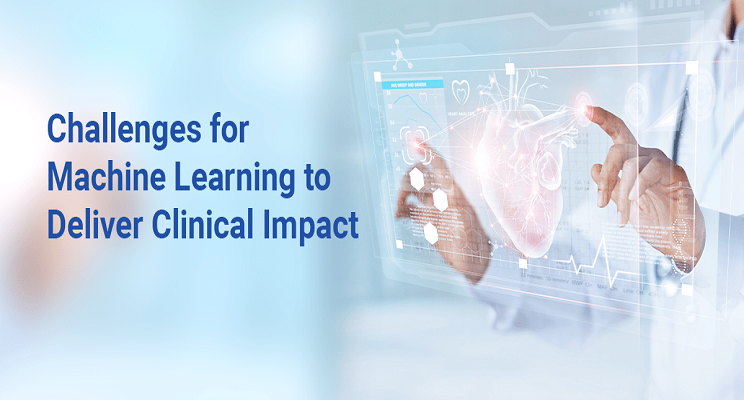Artificial Intelligence (AI) is making transformative strides in healthcare, offering groundbreaking innovations that promise to enhance patient care, streamline operations, and advance medical research. From predictive analytics and personalized treatment to diagnostic tools and robotic surgery, AI is reshaping how healthcare is delivered. This article explores the significant innovations driven by AI in healthcare and the challenges that come with integrating these advanced technologies.
1. AI Innovations in Healthcare
A. Predictive Analytics
- Early Diagnosis and Risk Prediction: AI algorithms analyze vast amounts of patient data to predict the likelihood of diseases and health conditions, enabling early intervention and personalized treatment plans.
- Examples: Predictive models for identifying patients at risk of chronic diseases such as diabetes, cardiovascular conditions, and cancer.
B. Personalized Medicine
- Tailored Treatments: AI enables the development of personalized treatment plans by analyzing genetic, environmental, and lifestyle factors unique to each patient.
- Examples: AI-driven platforms for designing individualized cancer therapies based on genetic profiles, and optimizing drug dosages for specific patient needs.

C. Diagnostic Tools
- Enhanced Accuracy: AI-powered diagnostic tools assist medical professionals in interpreting medical images, such as X-rays, MRIs, and CT scans, with higher accuracy and speed.
- Examples: AI algorithms for detecting abnormalities in radiology images, and AI systems for identifying early signs of diseases like Alzheimer’s and Parkinson’s.
D. Robotic Surgery
- Precision and Minimally Invasive Procedures: AI-assisted robotic surgery systems enhance precision in complex procedures, reduce recovery times, and minimize surgical risks.
- Examples: Robotic systems like the da Vinci Surgical System for performing delicate surgeries with greater accuracy.
E. Virtual Health Assistants
- 24/7 Patient Support: AI-powered virtual health assistants provide patients with round-the-clock support, answering questions, scheduling appointments, and managing medication.
- Examples: AI chatbots for symptom checking, medication reminders, and virtual consultations with healthcare professionals.
2. Benefits of AI in Healthcare
A. Improved Patient Outcomes
- Early Detection and Prevention: AI enables earlier detection of diseases and conditions, leading to more effective treatment and improved patient outcomes.
- Personalized Care: AI provides personalized treatment options, enhancing the effectiveness of interventions and minimizing adverse effects.
B. Increased Efficiency
- Streamlined Operations: AI automates administrative tasks such as appointment scheduling, patient triage, and data entry, freeing up healthcare professionals to focus on patient care.
- Resource Optimization: AI helps optimize resource allocation, manage patient flow, and reduce wait times in healthcare facilities.
C. Enhanced Research and Development
- Accelerated Drug Discovery: AI accelerates drug discovery and development by analyzing vast datasets to identify potential drug candidates and predict their effectiveness.
- Innovative Treatments: AI facilitates the development of new treatments and therapeutic approaches based on emerging scientific insights.
3. Challenges and Considerations
A. Data Privacy and Security
- Sensitive Information: The use of AI in healthcare involves handling sensitive patient data, raising concerns about data privacy and security.
- Challenges: Ensuring compliance with regulations such as HIPAA (Health Insurance Portability and Accountability Act) and safeguarding data from breaches.
B. Integration with Existing Systems
- Compatibility Issues: Integrating AI technologies with existing healthcare systems and electronic health records (EHRs) can pose challenges related to compatibility and interoperability.
- Challenges: Ensuring seamless integration and data exchange between AI systems and traditional healthcare technologies.
C. Ethical and Bias Concerns
- Bias in AI Algorithms: AI systems can inherit biases from training data, leading to disparities in healthcare outcomes for different patient populations.
- Challenges: Addressing ethical concerns related to AI decision-making and ensuring fairness and equity in AI-driven healthcare solutions.
D. Training and Adoption
- Education and Training: Healthcare professionals need adequate training to effectively use and interpret AI tools, which requires investment in education and resources.
- Challenges: Overcoming resistance to change and ensuring that AI technologies are adopted and utilized effectively in clinical settings.
4. Future Directions
A. AI and Precision Medicine
- Advancing Precision Medicine: Future developments in AI will further enhance precision medicine by integrating genomic data, lifestyle factors, and real-time health monitoring.
- Impact: More targeted and effective treatments tailored to individual patient profiles.
B. AI in Remote Healthcare
- Telemedicine and Remote Monitoring: AI will play a crucial role in expanding telemedicine and remote healthcare services, improving access to care for underserved populations.
- Impact: Enhanced remote patient monitoring, virtual consultations, and access to specialized care.
C. Collaborative AI and Human Expertise
- Human-AI Collaboration: The future of AI in healthcare will involve collaboration between AI systems and human experts, combining the strengths of both to improve patient care.
- Impact: Augmented decision-making, better patient outcomes, and more efficient healthcare delivery.
Conclusion
Artificial Intelligence is revolutionizing healthcare by offering innovative solutions that improve patient care, increase efficiency, and advance medical research. From predictive analytics and personalized medicine to robotic surgery and virtual health assistants, AI is driving significant changes in how healthcare is delivered. However, challenges related to data privacy, system integration, ethical considerations, and training must be addressed to fully realize the potential of AI in healthcare. As AI technologies continue to evolve, they will play an increasingly vital role in shaping the future of healthcare, offering new opportunities for enhancing patient outcomes and transforming the healthcare landscape.
